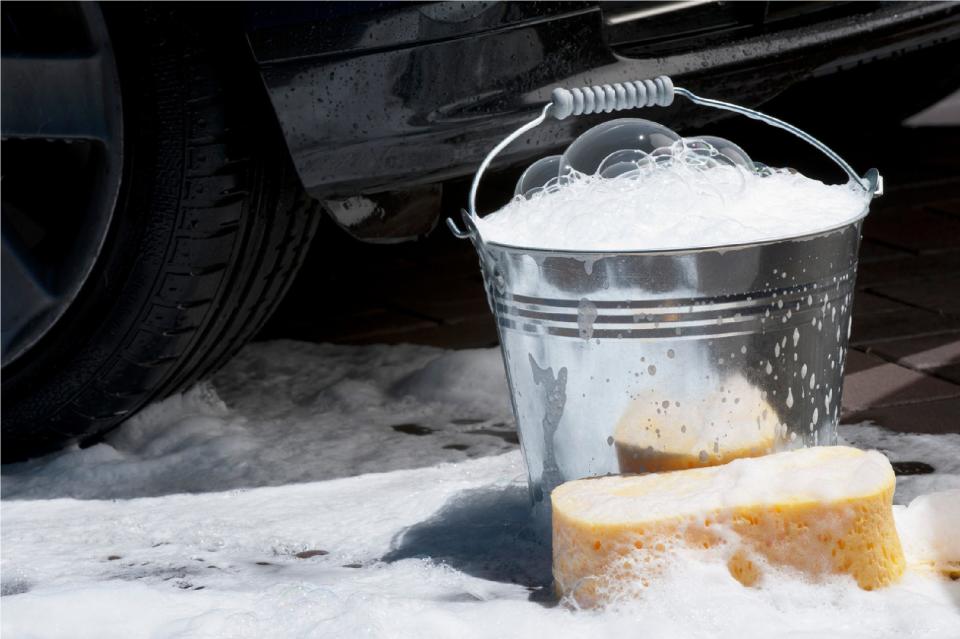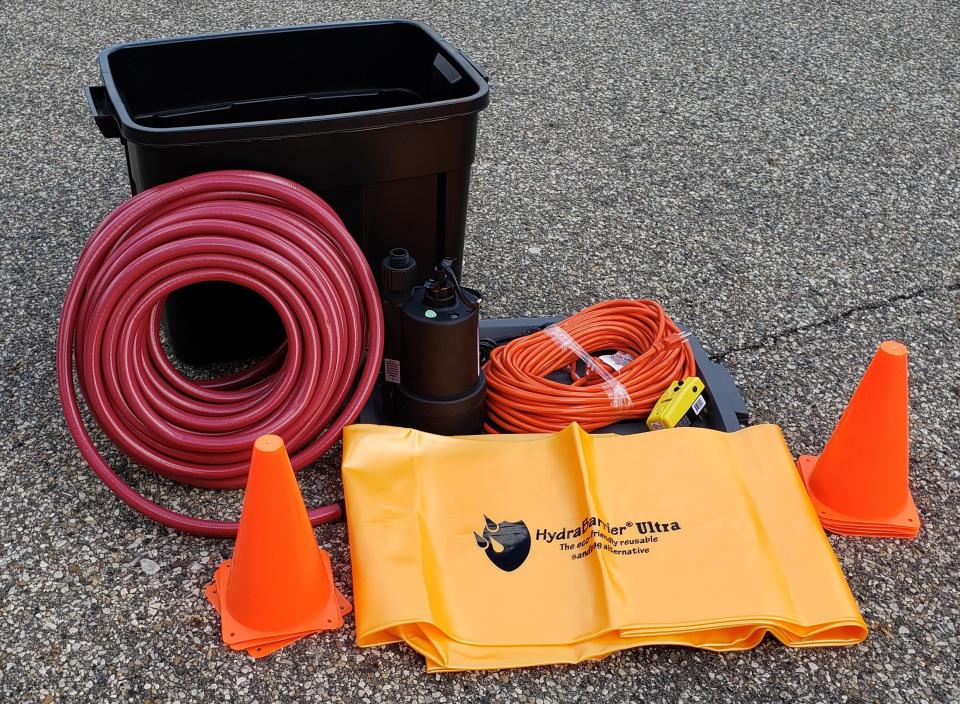Keep water quality in mind when washing vehicles using these tips
HOLLAND — Whether clearing off the last of the road salt from your car or preparing your boat for use in the warmer weather, washing vehicles requires special considerations to prevent increased pollution in Lake Macatawa.
Paved surfaces like driveways and parking lots direct dirty, soapy water to storm drains that feed into Lake Macatawa without any filtering, resulting in negative environmental impacts. To minimize this damage to aquatic ecosystems, consider the following concerns while caring for your vehicles.

Realize that both the soap and the pollutants bound to the soap cause harm to our waterways.
Soaps allow water to grab dirt and oil off surfaces, but these chemicals can reduce the function of a fish’s gills and make them more susceptible to impacts of the attached pollutants. Using non-toxic and phosphate-free cleaners reduces excess pollution and helps keep our waterways safe and clean for the animals that live there.
The pollutants of most concern are liquids like gasoline or diesel fuel, motor oil, heavy metals like copper and suspended solids, which is dirt in the water column.
Fossil fuel pollutants cause harm by direct contact, such as being ingested by aquatic animals, as well as contributing to the destruction of their habitats. Copper negatively affects a fish’s sense of smell, which they rely on for navigation and finding food. Suspended solids mixed in the water column prevent sunlight from reaching deeper into the water column. Once those solids settle out of the water, they can cover fish eggs or habitat of aquatic insects.

Where you wash your vehicle also contributes to the severity of pollution. The best option is to visit a commercial washing facility where water is treated at a wastewater treatment plant.
If washing at home, opt for washing on grass or other vegetated surfaces so that rinse water gets absorbed and filtered into the ground instead of entering storm drains. The same is true if you are hosting or participating in a charity car wash.
If a paved surface is the only option, consider borrowing a Fish-Friendly Car Wash Kit from the ODC Network to keep water runoff out of storm drains and Lake Macatawa.
These kits are available to borrow for free and provide a barrier that keeps dirty water out of storm drains and a pump to direct it to a more appropriate disposal route, such as a grassy area or down an outdoor sink that drains to the sanitary sewer and, eventually, a wastewater treatment facility.
Subscribe: Receive unlimited access to your local news coverage
Paved surfaces also have existing pollution on them that can get washed away by soapy rinse water on its way to a storm drain, further increasing the amount of unwanted materials carried to our waterways.
To minimize the amount of oil or fuel that reaches paved surfaces, perform proper and routine maintenance on vehicles to catch leaks before or shortly after they occur. It is also helpful to use a drip pan when working on the engine.
— Kelly Goward is the land and water director at the ODC Network.
About this seriesMiSustainable Holland is a collection of community voices sharing updates about local sustainability initiatives.This Week’s Sustainability Framework Theme: Community Knowledge: The collective knowledge and energy of the community is an incredible resource that must be channeled to where it is needed.
This article originally appeared on The Holland Sentinel: Keep water quality in mind when washing vehicles using these tips

